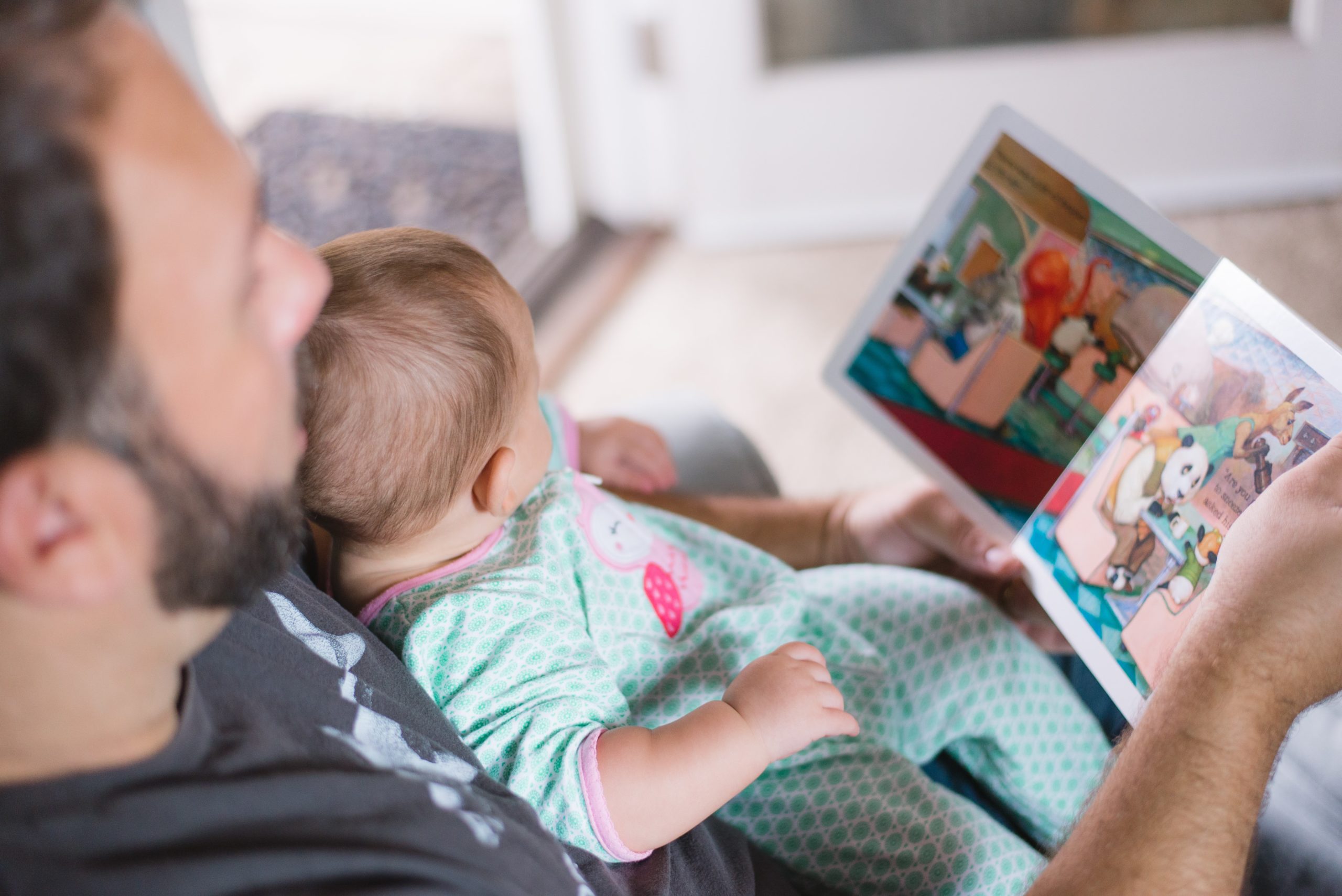Grantmaking Through Crisis: 2020 Takeaways Continued
August 11, 2021Fluent In Compassion
September 30, 2021
Easy As ABC: Reach Out and Read opens doors to literacy in the Carolinas
Once upon a time, Charlotte-Mecklenburg’s statistics on early childhood literacy were troubling at best. But community conveners, policymakers, and nonprofit leaders have worked vigorously to turn a new page on behalf of the next generation.
Reach Out and Read (ROR) is a national organization making a significant impact in the Carolinas with its successful pediatric read aloud model. This initiative incorporates books into pediatric care and helps families work toward literacy and language development together. Callee Boulware is the Regional Director of the affiliate Reach Out and Read Carolinas. We talked with her to learn more about medically-based literacy interventions.
Historically, ROR made its first touchpoint with families through pediatric providers at their babies’ six-month checkups. Callee explains: “This is around the age that babies start giving back a little bit more. They’re smiling, showing their pleasure and engagement with their parents and caregivers. But as early brain development research has evolved, we’ve learned that we simply can’t wait until that six-month checkup for a whole lot of reasons.”
Callee notes that more than 80% of the brain is developed by the time a child turns three.
In this same timeframe, a baby born into poverty will hear 30 million fewer words than their more affluent peers. 66% of babies born into poverty will not be read to daily.

Every minute counts when a child’s school readiness hangs in the balance. To maximize these pivotal moments of infancy, ROR implemented its Backing Up to Birth program. Providers have unparalleled access to newborns and the trust of their parents; they can use books to facilitate conversations about healthy development from day one.
Says Callee: “The opportunities for families to bond and build relationships in those early months is really critical…But for a lot of families, the idea of talking to your newborn all day feels very awkward and strange. It doesn’t seem like something that a baby would get a whole lot of benefit from.
“So those early visits provide wonderful opportunities for our medical providers to let them know: You, your time, your attention, your voice: that is what your baby needs more than anything else in the whole world. Here are ways to make that happen, and here is what it’s doing for your baby’s brain.”
ROR’s culturally and developmentally appropriate books become tools in the hands of doctors as they complete routine checkups. Can a baby manipulate the book? Does the baby know that a book handed to her upside down can be turned right side up? Will the baby react and pass the book to mom or grandma?

We asked Callee about the response of local medical providers. She shares, “In this era of electronic medical records, much of their time is spent behind the screen checking boxes on an iPad. ROR enables them to put that down, touch the child, and reconnect with why they went into medicine in the first place. Particularly for our young providers, it gives them a natural way to connect with our families meaningfully.”
ROR has been endorsed by the American Association of Pediatrics, and Backing Up to Birth instruction is now incorporated into providers’ residency training.
In practice, the pediatric read aloud model dramatically increases the quality of a provider’s time with families and ultimately impacts that provider’s job satisfaction.
It’s no wonder Callee often has a waitlist of doctors asking to participate.
Data shows that ROR’s pediatric read aloud model can place babies on a trajectory for school readiness. However, Callee observes that school readiness doesn’t exist in a vacuum. “We can only get to that if all those other foundational moments happen underneath. The academic success and language skills that children develop because of ROR is the tip of the iceberg.”

For Callee and her team, the next chapter is about the bottom half of the iceberg. From ROR’s impact on maternal depression to mother-baby bonding, there’s a lot to explore. Right now, they’re focusing on well visit compliance – ensuring families attend all recommended medical appointments during key developmental years. Anecdotally, ROR has great evidence of its programs increasing compliance. To gain more insight, the Carolinas affiliate is launching a research project in North Carolina.
In the meantime, primary care physicians will continue to unlock the magic of reading in exam rooms across the country. Callee concludes: “If we all learned anything over the past year, it’s that we need to help families be resilient and learn how to have calm, steady moments together that create security for children. We can weather a tremendous amount if we model supportive adult relationships.”
Without a doubt, this is a happily ever after worth fighting for.
To date, The Leon Levine Foundation has awarded $275,000 to ROR Carolinas for its work in Mecklenburg County.
